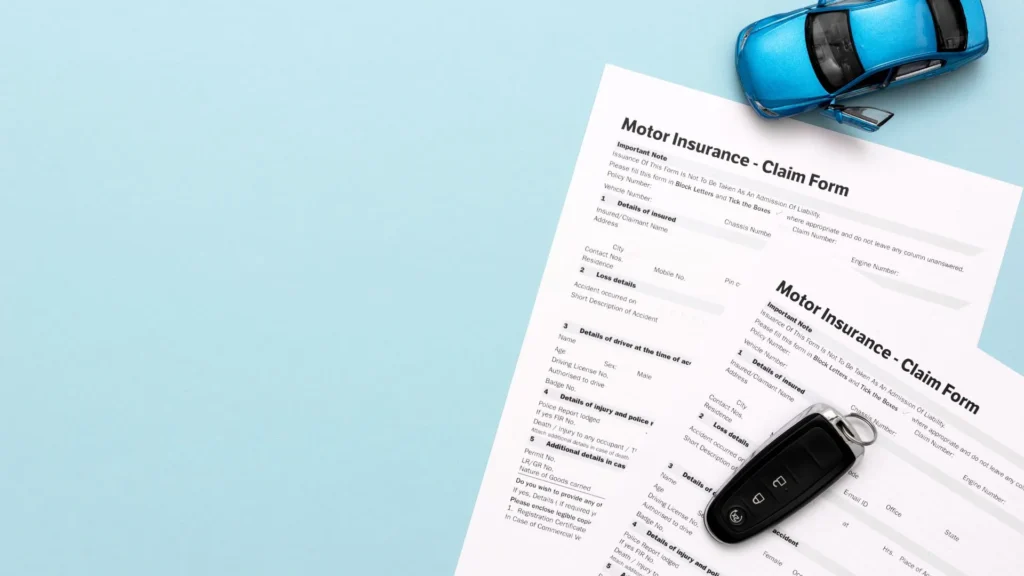The love for open roads and wanderlust is shared among people of all ages nationwide. RVs (Recreational Vehicles) have proven to be an excellent source of satisfying both these needs. Recreational Vehicles (RVs) have emerged as a popular choice for many Americans as ownership went up to an all-time high of 11.2 million in 2021. They symbolize freedom, adventure, and the allure of the great outdoors. Yet, diving into the world of RVs also means navigating the terrain of RV loans and financing.
For many, understanding RV loans is essential in this journey, ensuring that dreams of road trips and camping don’t lead to financial roadblocks. This article provides a comprehensive overview of RV loans, delving deep into how they function, the requirements to secure them, and tips for obtaining the best RV loan rates. Don’t forget to insure your RV with the best competitive deals with Beem. Whether you’re a seasoned traveler aiming to upgrade your current RV or a newcomer looking to make your first purchase, a clear grasp of RV financing can empower you to make informed decisions, ensuring smooth rides both on the road and in your financial journey.
What is an RV Loan?
An RV loan is a financial agreement allowing individuals to borrow money to purchase a Recreational Vehicle. Unlike general personal loans, these are tailored to accommodate RVs’ unique costs and considerations.
How RV Loans Differ from Regular Auto Loans?
When thinking about RV financing, it’s essential to understand how RV loans distinguish themselves from standard auto loans. At first glance, both seem similar as they finance vehicular purchases. However, the key differences lie in:
- Loan Duration: RV loans often have extended repayment terms. Given the high cost of many RVs, it’s not uncommon for these loans to span 10-20 years, whereas most car loans max out around 5-7 years.
- Collateral: While auto loans typically use the car as collateral, RV loans may sometimes be unsecured, meaning they don’t necessarily use the RV itself as collateral. This can influence RV loan rates.
- Interest Rates: Due to some RVs’ extended loan durations and luxury nature, RV loan rates can sometimes differ significantly from traditional auto loan rates.
- Depreciation: Cars depreciate quickly, but many RVs hold their value longer, especially if well-maintained. Lenders often consider this when determining loan terms and rates.
By understanding the specific nature of RV loans, prospective buyers can better navigate the RV financing landscape. It’s essential to remember that, like any loan, the terms and conditions depend on the lender, your creditworthiness, and other factors.
How Do RV Loans Work?
Navigating the world of RV financing can be challenging, but with a clear roadmap, it becomes easier to understand. Here’s a breakdown of how these loans typically function.
Application Process
When considering RV financing, the journey begins with an application. Prospective borrowers provide personal and financial information to potential lenders. This can include employment details, credit scores, and financial obligations.
Loan Types
There are two primary categories:
- Secured RV Loans: These loans use the RV itself as collateral. If a borrower defaults, the lender can seize the vehicle to recover funds. Secured loans usually offer better RV loan rates due to reduced risk for lenders.
- Unsecured RV Loans: Unlike their secured counterparts, these loans don’t require the RV as collateral. However, they often come with higher interest rates because the lender assumes more risk.
Approval
Once the lender evaluates your application and creditworthiness, you’ll receive a decision. A good credit score and solid financial history can increase your chances of approval and fetch more favorable terms. If you are struggling with a bad credit score, Beem can help you improve your chances for getting a loan by providing the rights tips to enhance your creditworthiness.
Loan Disbursement
Upon approval, funds are transferred directly to the RV seller (in case of dealership financing) or the borrower, especially if purchasing from a private seller.
Repayment
Borrowers repay the loan monthly, including the principal amount and interest. Understanding the repayment terms, including duration, interest rate, and any potential penalties for early payment.
Loan Closure
Once all repayments are completed, the loan is officially closed. If it was a secured loan, the RV’s title, free from any liens, is transferred to the borrower.
Understanding the inner workings of RV loans is crucial for anyone considering RV financing. With thorough research and due diligence, borrowers can ensure they opt for a loan that aligns with their financial capabilities and RV aspirations.
What are the Requirements for an RV Loan?
Entering the RV financing realm requires more than just a desire to hit the open road. Lenders have specific criteria that borrowers must meet to qualify for RV loans. Let’s explore the fundamental requirements:
Credit Score
It is a representation of a person’s creditworthiness based on their credit history. Higher scores generally lead to better RV loan rates. Most lenders seek borrowers with good to excellent credit scores, although some might cater to those with lower scores—at typically higher interest rates. If you have a poor credit score, growing credit for better chances is crucial.
Proof of Income
Lenders need assurance that borrowers can repay the loan. Consequently, they often request recent pay stubs, tax returns, or other income verification documents. Consistent, verifiable income can make the approval process smoother.
Debt-to-Income Ratio
This metric evaluates a borrower’s total monthly debt obligations relative to their monthly income. Lenders use it to gauge whether an applicant can handle the added monthly payment of an RV loan. A lower ratio indicates a better financial background to handle new debt.
Down Payment
While some RV loans might offer 100% financing, many lenders expect borrowers to make a down payment, typically ranging from 10% to 20% of the RV’s purchase price. A substantial down payment can also fetch better interest rates.
Type and Age of the RV
The specific RV model, age, and whether it’s new or used can influence loan approval. Some lenders might be hesitant to finance older models due to depreciation concerns.
Personal Information
Basic details, such as a valid ID, proof of residency, and sometimes references, are standard requirements for most loans, including RV financing.
Understanding and preparing for these requirements can simplify and expedite the RV loan application process. It also positions potential borrowers to negotiate better terms and ensure their RV journey starts on a solid financial foundation.
How to Get the Best RV Loans?
When diving into RV financing, every traveler aims for the best deal. But what does ‘best’ entail? It’s not just about the lowest RV loan rates; it’s a combination of favorable terms that align with your financial health. Here’s a roadmap to securing the optimal RV deals for your needs.
1. Research Multiple Lenders: Begin by broadening your horizons. Instead of settling for the first lender you come across, research various institutions, from traditional banks and credit unions to specialized online RV financing platforms. Each may offer unique advantages and terms.
2. Understand the Total Cost: While attractive RV loan rates might catch your eye, remember to consider the overall cost of the loan, including potential application fees, processing charges, and early repayment penalties. These can significantly affect the total amount you’ll pay over the loan’s life.
3. Boost Credit Score: Previously, we’ve highlighted the significance of a good credit score, but it bears repetition. Regularly monitor your credit report for inaccuracies, settle outstanding debts, and avoid unnecessary credit inquiries in the lead-up to your loan application.
4. Negotiate: Many aspects of RV financing can be negotiated, from the interest rate to loan duration and fees. Don’t hesitate to discuss terms with your lender; even a slight reduction in the interest rate can save you a considerable sum over time.
5. Consider Seasonal Offers: Certain times of the year, like end-of-season sales or holiday promotions, might bring attractive financing offers. You can benefit from more favorable terms by timing your RV purchase with these deals.
6. Opt for Shorter Loan Terms: While longer loan terms provide smaller monthly payments, they often come with higher interest costs over the loan’s duration. If feasible, opt for a shorter loan term to minimize the overall interest you’ll pay.
7. Read the Fine Print: Every loan agreement comes with fine print detailing terms and conditions. Ensure you’re well-acquainted with these, understanding any potential penalties or fees that might arise during the loan’s tenure.
Embarking on your RV journey with the best possible financing solution ensures peace of mind, letting you focus on the adventures ahead rather than financial intricacies.
Factors to Consider When Choosing an RV Loan
Venturing into the RV financing landscape requires careful navigation. Beyond the allure of hitting the open road, it’s vital to consider the implications of your loan choices. Here are crucial factors that can influence the decision-making process, ensuring you make an informed selection.
Interest Rates (RV Loan Rates)
A critical aspect of any loan, interest rates directly influence your monthly payment and the overall cost of borrowing. While credit score plays a prominent role in the rate you’re offered, shopping around to get the best RV loan rates available is crucial.
Loan Duration
This refers to the length of time you have to repay the loan. While a longer term can mean lower monthly payments, it often leads to paying more interest over time. Balance out your budgetary needs with the desire to minimize interest costs.
Fees
Beyond the principal and interest, some loans carry additional fees, like origination fees, application charges, or prepayment penalties. Always factor these into the total cost of the loan.
Lender Reputation
In the age of online RV financing platforms, conducting thorough due diligence is imperative. Check reviews and ratings, and consult with others who’ve taken similar loans to ensure you’re dealing with a reputable institution.
Flexibility
Life is unpredictable. Knowing if your lender offers features like deferred payments in case of financial hardship or allows for early repayments without penalties is valuable.
Down Payment
A more significant down payment can fetch better interest rates, as it reduces the lender’s risk. However, ensure the upfront payment is manageable for your financial reserves.
Resale Value
Consider the RV’s potential resale value, especially if you consider selling it before paying off the loan. RVs that hold their value well can be beneficial in such scenarios.
Insurance Costs
Some loans require comprehensive insurance, which can influence the monthly outgo. Understand these requirements and factor them into your budget.
Ultimately, RV financing is as much about the journey as the destination. Considering these factors, you can ensure your financial journey is as pleasant as the adventures you’ll undertake in your new RV.
Conclusion
Embarking on the journey to own an RV is both exhilarating and complex. With the varied options in RV financing and the intricacies of RV loan rates, it’s easy to feel overwhelmed. However, Beem provides a solid understanding of what RV loans entail and the factors influencing them can guide you smoothly through the process. Use Beem to compare the best auto insurance quotes to get the best deal for your budget. By diligently researching lenders, being aware of all costs involved, and considering the long-term implications of your loan choices, you can make the most informed decisions for your unique circumstances.
Always prioritize a thorough evaluation over quick decisions, and remember that the best RV loans match your financial and travel aspirations. As you prepare to hit the open roads, let your diligence in securing the right financing pave the way for countless adventures and memories.
Frequently Asked Questions
Q. How do I qualify for the best RV loan rates?
Your credit score is a primary factor. A higher score usually leads to more favorable rates. However, consider factors like employment status, income, down payment, and the loan’s term length. Research multiple lenders for the best offers.
Q. Are online RV financing platforms safe?
Yes, many online RV financing platforms are reputable and safe. However, always conduct due diligence, check reviews, and ensure the platform uses secure encryption to protect your data.
Q. Can I pay off my RV loan early?
It depends on your loan agreement. While some loans allow early repayments without penalties, others might charge a fee. Always read your contract’s fine print.


























